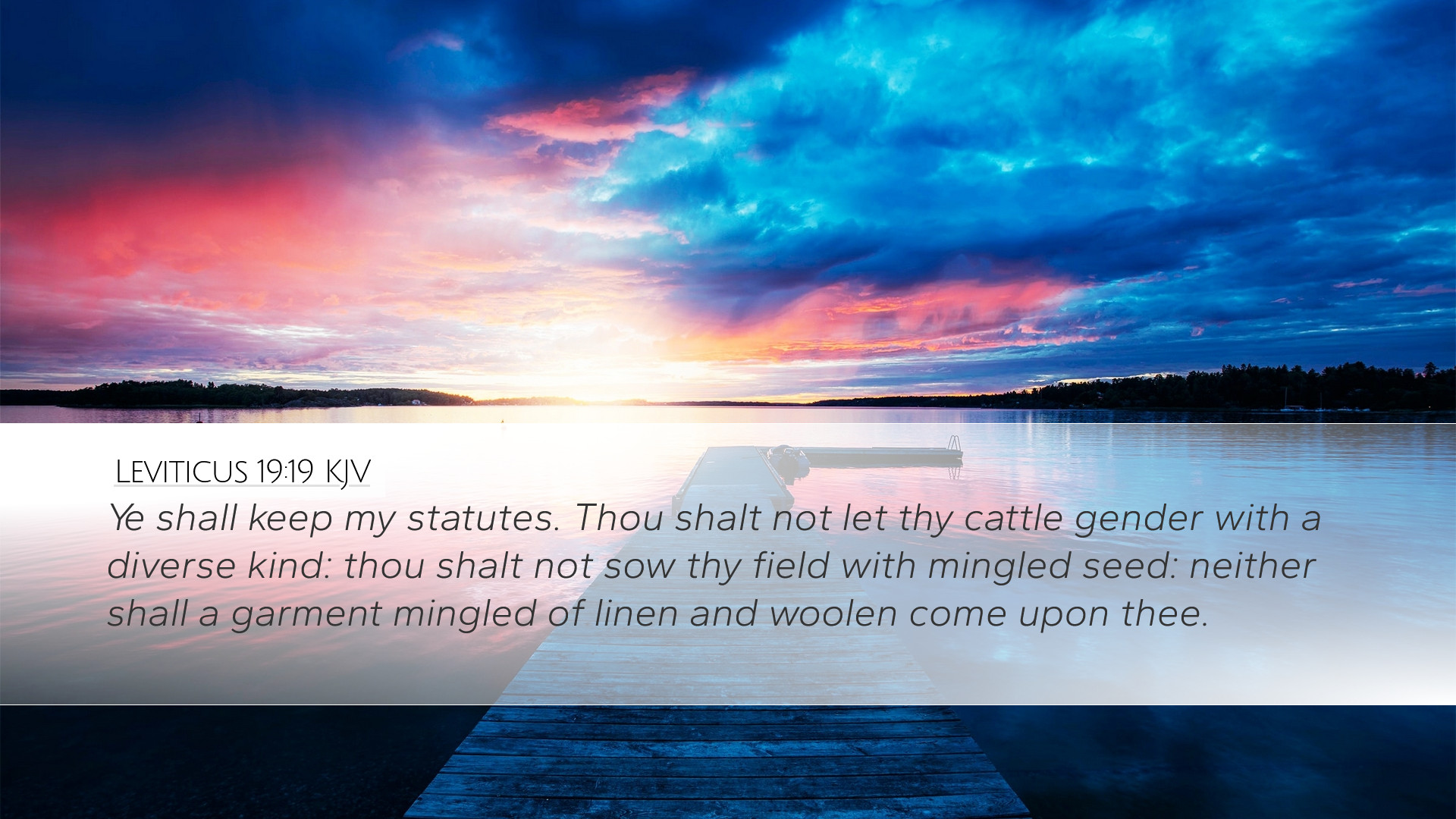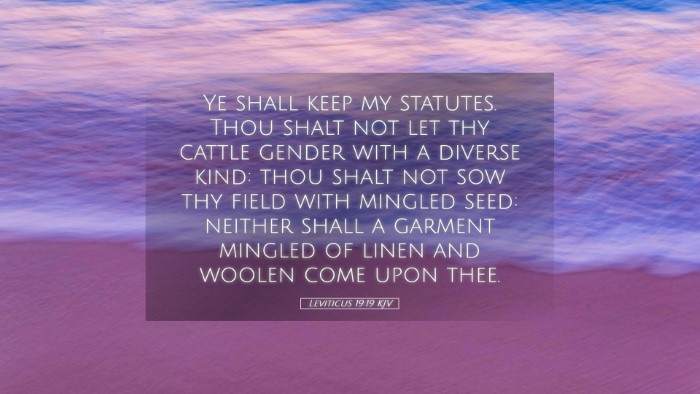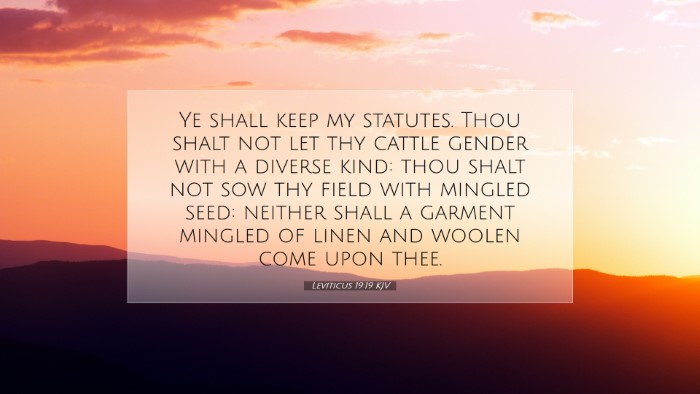Commentary on Leviticus 19:19
Bible Verse: "Ye shall keep My statutes. Thou shalt not let thy cattle gender with a diverse kind: thou shalt not sow thy field with mingled seed: neither shall a garment mingled of linen and woolen come upon thee."
Introduction
The verse found in Leviticus 19:19 reflects the broader themes of holiness and separation as emphasized in the Mosaic Law. This passage, along with its surrounding context, serves as a vital source of instruction regarding the conduct expected of God's people. An examination of public domain commentaries provides insights into its meaning for contemporary believers.
Contextual Background
Leviticus is often referred to as the book of holiness. It lays down the guiding principles for the Israelites in their covenant relationship with God. Chapter 19 is significant as it contains various commands that touch on ethical, ceremonial, and moral aspects of life. The emphasis here is on the distinctiveness of God's people in their practices and lifestyles.
Insights from Public Domain Commentaries
Matthew Henry's Commentary
Matthew Henry provides a thorough examination of the principles underlying this verse. He notes that the prohibition against using diverse kinds in agriculture and textiles illustrates the fundamental law of separation. According to Henry, these distinctions serve to reflect the holiness of God and the need for His people to maintain purity in their worship and daily conduct.
Henry also emphasizes the broader application of this commandment, suggesting that it serves as a metaphor for spiritual purity. Just as diverse and unclean mixtures were forbidden, so too should believers avoid the moral and spiritual contamination of the world.
Albert Barnes' Notes on the Bible
Albert Barnes expands upon the agricultural and ceremonial implications of Leviticus 19:19. He argues that the commandment against mixed sowing and breeding is rooted in the necessity of preserving the integrity of creation. Barnes posits that God designed each creature and plant for specific purposes, and therefore mixing them undermines divine order.
Moreover, Barnes highlights that this law was not arbitrary but served a purpose: to keep Israel distinct from surrounding nations who often engaged in idolatrous practices that blurred the lines of purity. He discusses how these historical and cultural observations inform our understanding of holiness in the church today.
Adam Clarke's Commentary
Adam Clarke adds to the interpretation by reflecting on the symbolism inherent in the mixing of kinds. He notes that the laws concerning mixed seeds and textiles remind the Israelites that there are boundaries established by God that should not be crossed. Clarke also elucidates the spiritual implications, applying the teaching to the New Testament believer’s life.
He insists that the spiritual lesson transcends mere dietary or agricultural practices, calling believers to maintain a distinct identity in Christ amidst a world that promotes syncretism and compromise in faith.
Theological Implications
The verse serves as a reminder of God's desire for His people to reflect His holy character. The laws governing mixtures can be interpreted as a divine call to integrity, both personally and corporately.
- Divine Order: God’s commandments establish a created order beneficial for both society and creation.
- Holiness as Separation: The laws emphasize the need for moral and ritual purity as a reflection of one’s relationship with God.
- Community Identity: Keeping these statutes aids in preserving a community's identity as a separated people of God.
Conclusion
Leviticus 19:19, while seemingly specific in its directives, embodies profound truths concerning holiness, integrity, and separation in the life of God’s people. The insights drawn from Matthew Henry, Albert Barnes, and Adam Clarke contribute to a richer understanding of this passage, encouraging pastors, students, theologians, and Bible scholars to reflect on how these ancient commands can inform contemporary Christian living.
As believers, embracing the principles behind such laws can lead to a deeper appreciation of God’s holiness and a more profound commitment to living out that holiness in our daily lives.


